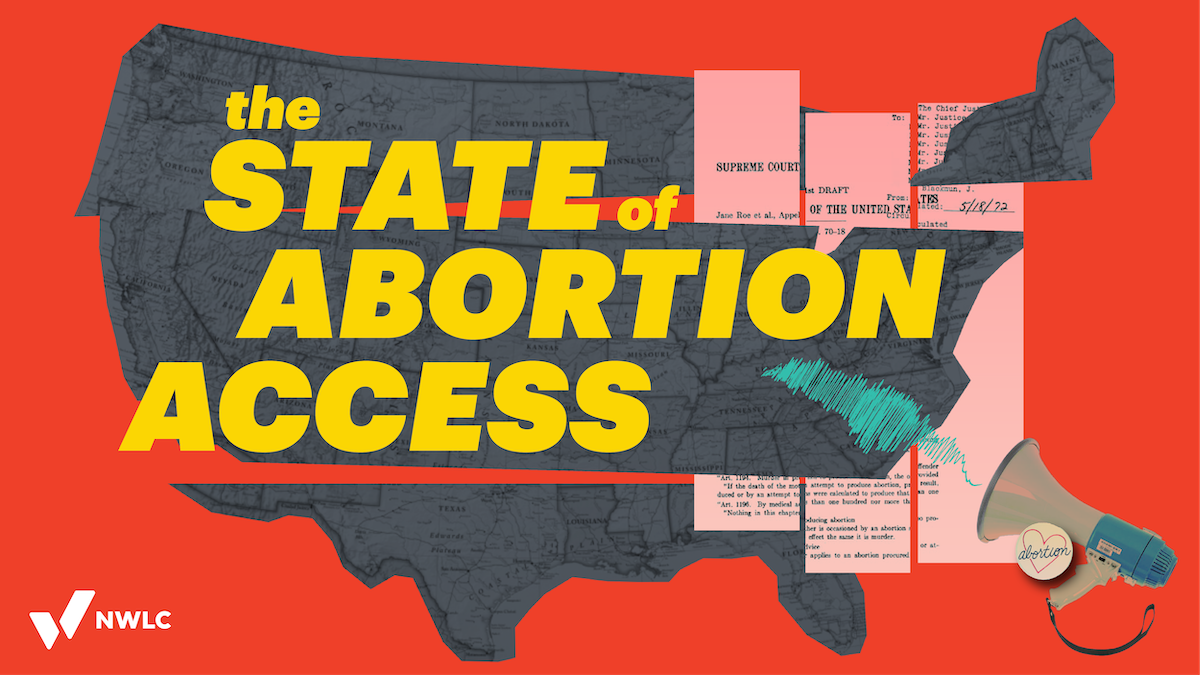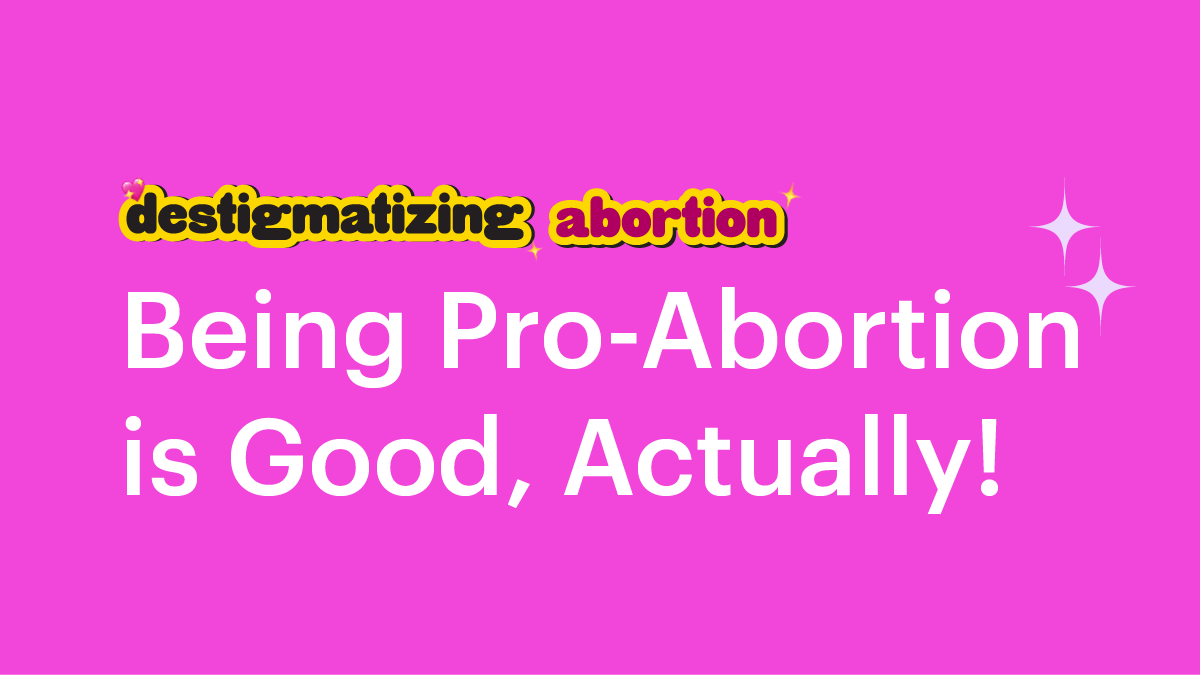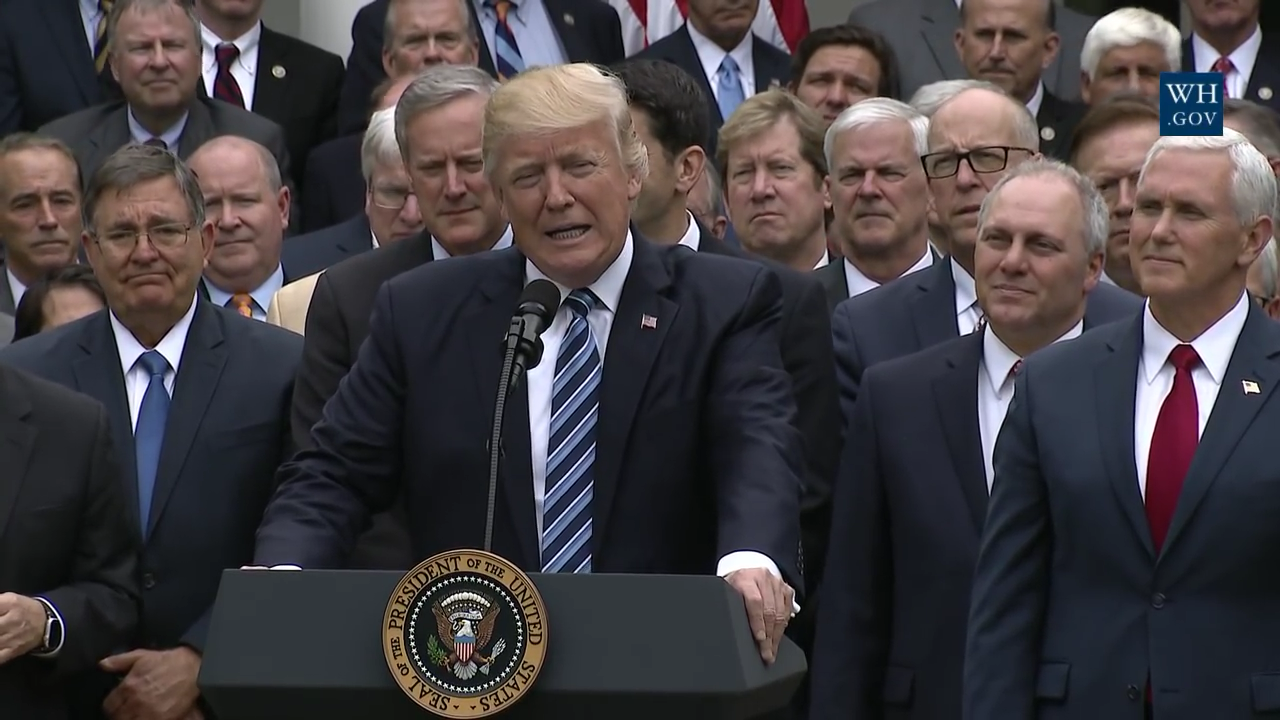Abortion rights, women of color, and LGBTQI+ people are under attack. Pledge to join us in fighting for gender justice.
The State of Abortion: States Moving to Restrict, Ban and Criminalize Abortion in the Wake of Leaked SCOTUS Draft

We got a glimpse into the damage the Supreme Court is poised to do to our rights last week. Let’s talk about it.
I don’t know about you, but all I’ve been able to think about is the leaked draft SCOTUS opinion in Jackson Women’s Health v. Dobbs, penned by Justice Alito, that would overturn Roe v. Wade. While this is a draft and not a final decision, the news was horrifying, even if not surprising. If this draft is finalized this summer, state governments would be left to decide what abortion access will look like in their states. Given that we started this blog to help folks keep track of all the awful anti-abortion bills that have been flooding state legislatures, that’s terrifying.
Plus, many states already have in place abortion bans on the books; more than half of states are ready to ban abortion if Roe is overturned. Even states that would not ban abortion entirely would be able to pass restrictions that would make obtaining an abortion logistically and physically impossible for many people. Roe already isn’t a reality for many people, and it’s about to get a whole lot worse.
Seeing the SCOTUS leak, I felt absolutely sick to my stomach, and I know I’m not the only one. First, I felt despair at how many people would suffer if this draft opinion is realized. How many people would lose control over their lives, futures, health, and bodies. How many people are terrified (myself included) about the ripple effect that could dismantle important rights that Roe underpins.
And then I felt outraged: outraged that our rights are threatened, ultimately, by a radical draft opinion filled with extremist anti-abortion talking points, signed by five justices with seemingly no understanding or compassion for the reality people face every day.
FYI, the costs of pregnancy are *not* covered by government assistance, as the opinion claims. And there is no federal law requiring paid family leave. To be clear, I don’t care if the government fully funded all of the things I need to thrive (which, they should, btw). The fact remains that my bodily autonomy is violated when I am denied these decisions.
While abysmal, the opinion is still a draft. But recent state legislative efforts reflect the reality that we will soon see a final opinion, with some states readying to see out-of-state patients and others testing the waters on restricting or banning abortion. With that being said, let’s get into the State of Abortion.
The Bad News
Louisiana
Louisiana has multiple bills moving that restrict, ban and criminalize abortions.
A majority of the Louisiana Senate voted in favor of restrictions for abortion pills. Louisiana legislators moved a bill that would permit homicide charges to be brought against people who end their pregnancies. The bill would make abortion a homicide “from the moment of fertilization,” leading to questions about the potential impact on treating ectopic pregnancies or availability of reproductive technologies, like IVF. While the bill may be stopped for now, it spells trouble for our future.
Lastly (seriously, WTF), legislators are pushing forward a bill that would ban abortion for anyone under a conservatorship in the state, even if the person’s conservators approve it.
Take action here.
Pennsylvania
Pennsylvania state legislature is pushing forward a proposed amendment to Pennsylvania’s constitution that would pave the way to criminalizing all abortion in the state to make the rights of fertilized eggs, embryos, and fetuses paramount over those of pregnant people. Plus, it opens the door to criminalizing any behavior by pregnant people that is perceived to harm the pregnancy, and would likely interfere with miscarriage management, treatment for ectopic pregnancy, and reproductive technologies like IVF.
Tennessee
Last week, Tennessee Governor Bill Lee signed a bill into law that makes it a felony to provide abortion pills through telehealth, punishable by a fine of up to $50,000. The bill would go into effect in 2023.
Texas
We already knew that Texas’ six-week abortion ban was making it near impossible for many people to get abortion care, but now we’re hearing reports that it is also making it increasingly difficult for people to access care when they experience a miscarriage. The drugs and procedures that physicians use when someone is miscarrying are often the same ones they would use in the case of an abortion, scaring some doctors and pharmacists from to distributing and providing these services.
The Good News
Connecticut
Connecticut’s governor signed a law that contains several new provisions that protect people who obtain abortions in Connecticut and those that help them.
Michigan
Attorney General Nessel stated she will not enforce a 1931 abortion ban, labeling it “draconian.” Last month, Governor Whitmer filed a lawsuit to overturn the same law.
New Jersey
This week, Governor Murphy announced plans for legislation that would expand who can provide abortion care, ensure insurance coverage of abortion and create a fund for abortion access, and refuse to cooperate with other states’ investigations of people who provide or seek abortions in New Jersey.
New York
N.Y. lawmakers and Attorney General Letitia James are pushing forward a bill that would create a state fund to give funds to abortion providers and nonprofits to increase access to care. The bill would also help ensure funding for uninsured folks seeking abortions.
TLDR, and what you can do
States likely to ban or severely restrict abortion if Roe falls can be found here. Check back next time for updates on the state of abortion access
I am outraged by anti-abortion legislators using us as political pawns with complete disregard for our rights, freedoms, equality, and quality of life. By politicians who say they care about our rights, but have done little if nothing to fight for them.
Even as I feel sadness and anger, I also feel grateful for the people taking up the fight. Grateful for the people sharing their stories and showing up. And grateful for those working to ensure abortion access, no matter what the Supreme Court does.
No matter where you live, show up to fight for reproductive freedoms on Saturday, May 14. We will be showing our outrage through nationwide mobilizations, including five anchor marches in Austin, Texas, Washington, D.C., New York City, Chicago, and Los Angeles. Find your nearest march and learn more here. If you cannot come to a march or there isn’t one near you, donate to or volunteer for abortion funds, and keep talking about how important–and essential–abortion access is.






